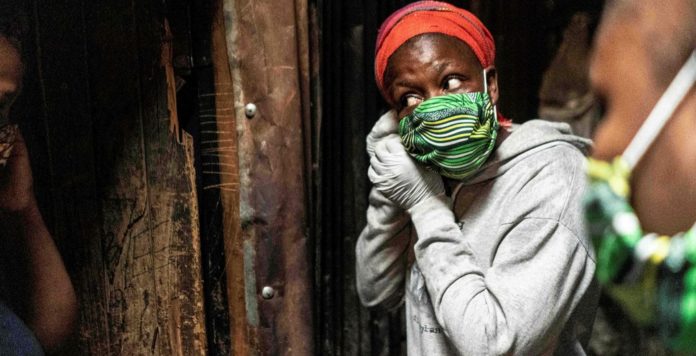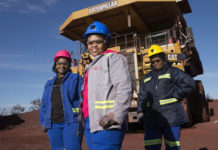
THE international trade union federation, IndustriALL Global Union, which focuses mainly on the mining and manufacturing sectors, last week hosted an online workshop from Geneva with 132 trade union leaders of 40 mining countries participating in the workshop.
What featured prominently was that mining sectors were globally regarded as the workplace epicentres of the pandemic. In this regard, Glen Mpufane, IndustriALL’s director of mining, singled out the return of miners in South Africa, referring to them as “lambs to the slaughter”.
That statement was too harsh.
While South Africa’s COVID-19 numbers in mining are high, the numbers indicate that effective testing is taking place. In addition, South African mining’s recorded fatalities due to the virus, expressed as a percentage of the positive cases, are significantly lower than the national average. The return to work of 450,000 miners in South Africa also offered opportunity for increased testing.
What’s a worrying about our mining statistics, is the approximate 74% of positive cases where the carriers are asymptomatic.
Asymptomatic cases increase the possibility of spreading COVID-19 in a mining community. Moreover, the tracking and tracing of potentially affected persons is complicated by a reluctance to identify those with whom workers have been in contact because of the stigma associated with the virus and the potential financial impact isolation has on workers.
As far as the positives go, South Africa and Argentina have been singled out in the discussion as the only two countries in the world where COVID-19 has been declared an occupational disease. This means an infected employee can claim workmens’ compensation. The challenge, however, is that such an employee must be able to prove that she or he was infected at the workplace.
MENTAL HEALTH
What was significant in the discussion was that Christine Olivier, deputy president of the National Union of Metalworkers of South Africa (Numsa), called on South African trade unions to settle their differences because stronger solidarity was needed to address the COVID-19 challenges the mining sector is facing. Olivier also said the impact of COVID-19 on mental health was being underestimated.
The uncertainties and new stress factors brought about by the virus have an impact on mental health, and the lack of concentration associated with mental illness can for instance cause mining accidents that are normally preventable.
An exchange of international knowledge also revealed new COVID-19 health threats.
In this regard exposure to chemical sanitisers and the effects of the full-time wearing of a mask have been highlighted as already having caused health problems in other parts of the world.
Most of the trade unions affiliated with IndustriALL subscribe to a ‘workerist framework of ideas’. Consequently, reference was made to the exploitation of miners by employers who have also captured governments by means of capitalist benefits. This line of thinking featured throughout the discussion.
In contrast was the perspective offered by Grahame Kelly, general secretary of the Australian mining and energy trade union (CFMEU). In his address, he used ‘us’ when referring to mining trade unions, mining houses and government. The inclusive pronoun is indicative of the mature relations that exist in the Australian mining sector.
It also transpired that when it comes to the comprehensive safety measures introduced in the mines, there are many resemblances between the South African and Australian approach and the measures they put in place.
Kelly also referred to the visibility of the Australian mining department’s inspectors and the leading role they play to provide COVID-19 related advice to stakeholders.
By contrast, the National Union of Mineworkers (NUM), at a recent meeting of the Parliamentary Portfolio Committee on Mining and Energy, highlighted the absence and inefficiency of mining inspectors in South Africa as a weakness in our mining sector. However, the Minerals Council of South Africa, which also participated in the portfolio committee’s discussions, did not agree with this statement.
Emil Ramirez, the director of Workers Uniting North America, made the point that American workers had to contend with President Donald Trump’s approach to COVID-19 as their main concern. That is why they would first have to deal with Trump at the polls in November before the country could address COVID-19 effectively.
In its presentation, Solidarity indicated that COVID-19 practices – such as maintaining social distance (especially in cages) – should be sustained after the lockdown as a means to counter the harassment of female employees.
The point has also been made that the increased status of and focus on “health” in the workplace should be sustained in view of the health benefits it holds for a workforce.
In this regard, Kelly pointed out that Australia is currently experiencing an unprecedented decrease in cold and flu-related workplace absenteeism which can be directly attributed to the COVID-19 measures that have been put in place and which, ultimately, increases productivity.
Gideon du Plessis is Solidarity’s General Secretary











